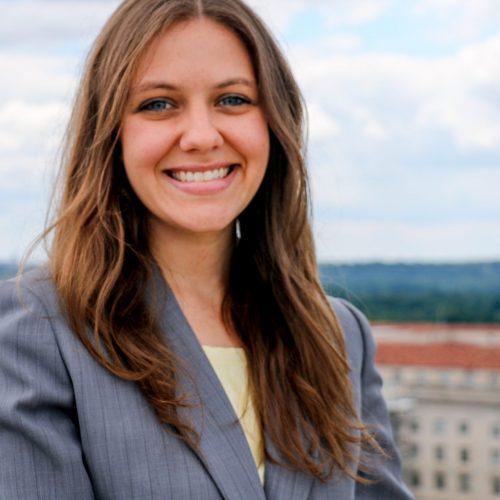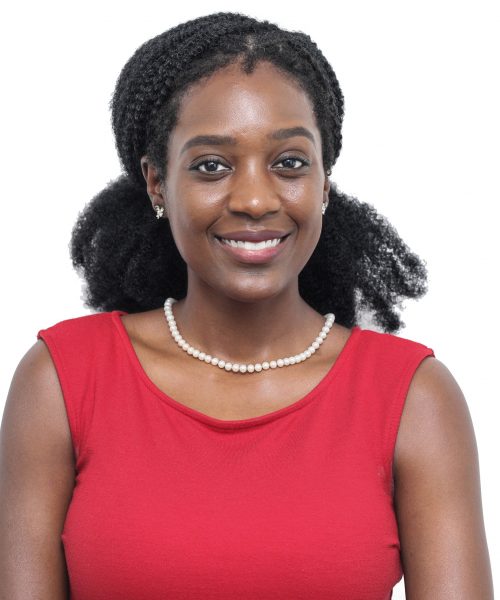
TP SPOTLIGHT:
JORDAN BURNS,
AFRICA REGIONAL MALARIA ADVISOR"...'soft' skills are really some of the most important when it comes to team management, conflict management, and any human resource gaps that arise in a collaborative environment like USAID."
How did you enter the field of global health?
Jordan: I began my undergraduate studies at the University of Louisville as a biology major/pre-med student with a limited understanding of the career possibilities in the field of global health. During my course of study, I chose to take several courses, including Medical Anthropology and Medical Geography, that looked at health and healthcare issues through a more socio-cultural lens. Studying abroad was another objective of mine, so I applied and received the David L. Boren scholarship and had the chance to study and conduct research in Brazil for a year, where I learned more about aspects of global health like epidemiology, social disparity issues, and health and human rights.
This experience and my coursework influenced me to apply to a variety of Master of Public Health programs, and I decided to pursue an MPH focused on Global Epidemiology at Emory University in Atlanta, Georgia. A service requirement with a government agency was a component of the scholarship I received to study in Brazil, so upon graduation I found the Global Health Fellows Program II (GHFP II) internship to support USAID’s work and continue my service in the field of global health, which helped me get my foot in the door at USAID. I later applied for a fellowship with the same organization, which is how I found myself in the next iteration of GHFP II, the Global Health Technical Professionals.
What does a typical day look like for you at USAID?
Jordan: My current title is Africa Regional Malaria Advisor, and I support the USAID Africa Bureau’s implementation of the U.S. President’s Malaria Initiative (PMI), a program launched in 2005 that supports public health and malaria-related programming in 24 Sub-Saharan African countries as well as a sub-regional Asian program in the Mekong. Because I collaborate with teams in the field in several African countries, my days typically start on very early teleconferences (to accommodate time differences between 5 and 8 hours ahead of Eastern Standard Time) to discuss a wide range of issues from administrative to budgetary to technical issues (for example planning for a mosquito bed net campaign and the challenges and coordination involved). Much of the rest of my day is spent coordinating, reviewing deliverables, and pushing items forward through agency bureaucracy so important work on the ground can happen.
What was the most significant experience you faced early in your career?
Jordan: Before I entered public health, a general challenge I faced was lack of knowledge of the scope and the career opportunities in it just based on lack of exposure to the global health sector in rural Kentucky (where I’m from). But once I decided to pursue global health as a career and was pursuing my MPH at Emory, the biggest challenge was simply the job search and figuring out how to get my foot in the door. I gained a bit of professional experience at the CDC in Atlanta while a student, but as graduation loomed, I found myself searching for jobs at USAID and other agencies in Washington, D.C., which (while unfamiliar to me at the time) is rich with U.S.-based global health career opportunities. I ended up accepting a 3-month internship in D.C. and lived in someone’s basement while I got up and running. But that internship was extended into 6 and then 12 months, during which time I networked and learned more about more permanent opportunities in the field. The experience taught me that although it can be risky or scary to take on shorter term commitments at first, accepting those positions can sometimes be the best way to get your foot in the door.
In your opinions, what are the two most important skills to have in the field of global health?
Jordan: First, I’ve found that having a decent level of foreign language proficiency will give you a clear advantage over other job applicants, and is often either preferred or required in global health positions, especially when a certain amount of work is to be done in the field and with field teams. Also, being proficient in data interpretation methods and tools is essential when working at a donor agency like USAID. You need to be able to interpret program statistics, information, and results to advise others (often non-technical folks) about budgetary and operational planning decisions. And I’m going to cheat a little bit by adding a third skill, but what some call “soft” skills are really some of the most important when it comes to team management, conflict management, and any human resource gaps that arise in a collaborative environment like USAID.
How have you found mentors and/or opportunities to network as a global health professional?
Jordan: I’ve used the resources offered by the USAID hiring mechanisms that I’ve been involved with (GHFP II and GHTP), including opportunities for mentorship, brownbag lunches, and seminars. I’ve also sought out scientific conferences and technical global meetings with other donor organizations on the job, which is a great way to network. Overall though, I’ve found that even in a networking opportunity-rich environment like Washington D.C., you have to intentionally make the time to take advantage of those opportunities, or else they can easily pass you by.
Do you have any advice for current global or public health students?
Jordan: My main advice is something I touched on earlier, which is to be willing to take on shorter, less permanent internships and experiences to get more exposure early and get your foot in the door initially. You’ll likely meet people along the way who will help you open doors for more permanent opportunities. However, I recognize that there may be some constraints that may limit one’s ability to pursue more temporary opportunities. In such cases, I recommend making time and cultivating the courage to explore informational interviews or other informal ways to learn and connect with others in the public health space.

